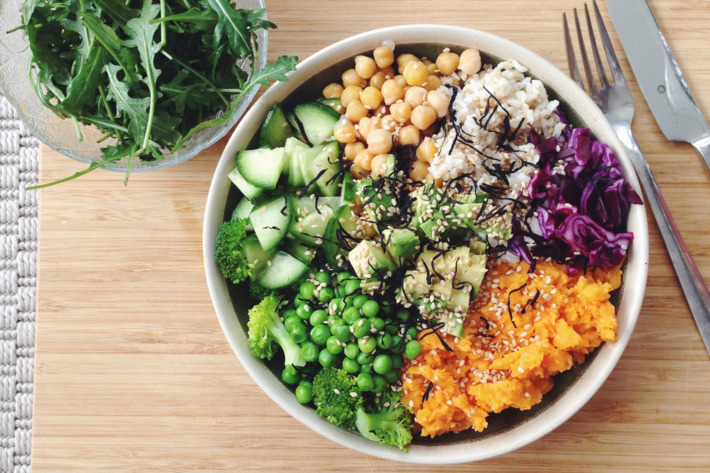Can an Expectant Mother Go Vegan?
Posted by Editor in Health and Wellness on Feb 13th, 2018 | Comments Off on Can an Expectant Mother Go Vegan?You’ve probably read countless articles on the advantages and disadvantages of going vegan despite the variety of food available for everyone today. While there are undeniably some benefits of choosing such a lifestyle, there are also a lot of valid objections to its repercussions on a person’s health.
One of the most controversial issues is maintaining that lifestyle when you are expecting a child.

Varied Opinions
Unfortunately, the answer could be different for each woman, because not only will the amount of vitamins and minerals have to be monitored, the availability, price, and palatability of food should also be taken into consideration. A pregnant woman should never be forced to eat something she doesn’t like; however, an alternative healthy source should be substituted especially if it’s essential to the diet. Some mothers claim that they have had healthy pregnancies as vegans, while other testimonies reveal that some had to rely on supplements for nutrients not readily found in fruits and vegetables.
Prenatal Vitamins and Minerals
So, how do you decide if you can survive with a vegan diet while pregnant? Although there are anecdotal evidences to successful vegan pregnancies, you need to take into consideration your health, your budget, and the availability of healthy food. To know how much you and your baby will need for the next 9 months, you should keep in mind the recommended amounts for vitamins and minerals.

• Protein = 71 g
• Iron = 27 mg
• Calcium = between 1,000 to 1,300 mg
• Vitamin A and Beta Carotene = between 700 to 1,000 mcg
• Vitamin D = between 600 to 4,000 IU
• Vitamin E = between 15 to 1,000 mg
• Vitamin C = between 80 to 2,000 mg
• Vitamin B12 = 2.6 mcg
• Folic Acid or Folate = between 400 to 1,000 mcg
• Zinc = between 11 to 13 mg
• Thiamin or B1 = 1.4 mg
• Riboflavin or B2 = 1.4 mg
• Niacin or B3 = between 18 to 35 mg
• Pyridoxine or B6 = between 1.9 to 100 mg

Vegan Diet
Simply put, this diet is limited, which is why most vegans use supplements and accompaniments to get all the nutrients. Typically, a vegan mother’s diet consists of the following: green peas, quinoa, buckwheat, oatmeal, pinto beans, chickpeas, whole wheat pasta, whole grain bread and cereals, soy milk, tofu, nuts, and miso. To get calcium, eat green leafy vegetables and orange juice, while iron sources can be found in beans, soy products, barley, bulgur, pumpkin seeds, dried fruits, spinach, kale, collard greens, and seaweed. Other vitamins can be found in fortified cereals, fortified meat substitutes, and fortified soy milk.
Non-Vegan Diet
If you decide to set aside your vegan diet, your meals will have more variety. Vitamins and minerals can be found in milk, eggs, cheese and most dairy products, high-protein food, liver, carrots, pumpkin, potatoes, fatty fish, nuts, spinach, wheat germ, green beans, strawberries, broccoli, whole grains, organ meats, pasta, rice, berries, legumes, pork, chicken, beef and most red meats, bread, bananas, cantaloupe, shellfish, oysters, cauliflower, cereals, canned fish with bones, fruit juices, dried beans, dried fruits, and other fruits and vegetables.

